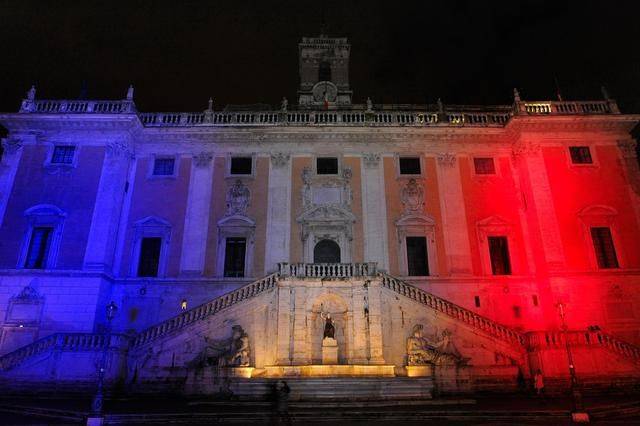French Terror Spills Over Onto Italy
Even as the Roman press associations, including the Foreign Press Association to which I belong, held a candle-light vigil Thursday night at Piazza Farnese in sympathy with the French victims, Interior Minister Angelino Alfano was drawing up a list of urgent security measures which he called upon Parliament to enact. Among these is imprisonment from three to six years for anyone leaving Italy to enlist in a jihadist war, and withdrawal of the passport and severe prison sentences for terrorist suspects. Other measures he requested (but why are they not already enacted?) include the prohibition of the sale of ingredients for making explosive devices, and the monitoring of on-line sites that advocate “hared and violence,” with their eventual blackout. Alfano acknowledged that “in Italy there are present 53 ‘foreign fighters.’”
The political repercussions are already beginning to surface. Whereas Pope Francis appealed Thursday for dialogue with moderate Islam, the feisty young leader of the Northern League, Matteo Salvini, speaking on Radio Padania, attacked the papal position on grounds that, “This is already a real war. To try to deal with this with nicey-nicey tolerance is suicide.”
Left-leaning Italian columnist Curzio Maltese, writing in Il Venerdi Jan. 9, points out that Salvini has managed to convert the League from its thirty years of history as a local movement primarily interested in promoting independence for the Italian North into a nationwide movement that has akin to and with affinities with Marina Le Pen’s in France. “It’s impressive that Matteo Salvini has managed to rubbish” the old-style League narrative,” said Maltese. For months Salvini has battled against uncontrolled immigration, a potent political weapon even before today. One recent poll showed that 14% of Southern Italians are, at least in theory, ready to vote for him.
Fears here are that the French horrors will generate rightist, anti-immigrant votes, a fact that Premier Matteo Renzi cannot ignore. Even as Renzi is obliged to negotiate with hostile political forces for the election, presumably in February, of a new president, the very parties with which he must deal are jumping onto the anti-immigrant train despite the fact that most of the migrants entering Italy do not remain here, and are themselves refugees from war.
From former Premier Silvio Berlusconi’s Forza Italia comes an appeal to “defend our values – kind-hearted multiculturalism has not brought good results in Europe.” The president of the Italian Bishops Conference, Angelo Bagnasco, has appealed to the moderate Muslims in Italy “to take their distance in a clear=cut way from these events.” Otherwise, he warns, there is the risk of a “violent” reaction.
Salvini’s strident stepping onto center-stage has effectively sidelined Beppe Grillo, who, to stake out a position, found nothing better than to insinuate that behind the French terrorists may be an unseen puppet master, as per the assassination of John Kennedy, the 1965 Milan bank bombing and the murder of Osama B in Ladin. “Other truths [may be] kept hidden,” he sentenced.
To deal with all this – with the needed security measures, with the political fallout at a time of political tensions – will require cool, clear thinking on the part of the best political minds in Italy.


































i-Italy
Facebook
Google+
This work may not be reproduced, in whole or in part, without prior written permission.
Questo lavoro non può essere riprodotto, in tutto o in parte, senza permesso scritto.